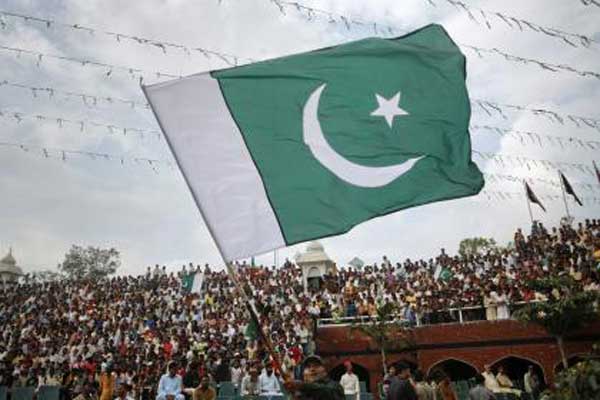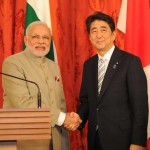IDR Blog
Pakistan: Perils of Keeping Snakes in the Backyard
 A decade ago, while addressing at a joint press conference during her Pakistan visit, the then US Secretary of State Hillary Rodham Clinton cautioned Islamabad about the perils of nurturing terrorist groups by saying, “You can’t keep snakes in your backyard and expect them only to bite your neighbours. You know, eventually those snakes are going to turn on whoever has them in the backyard.” Though a hard-hitting indictment, it evoked no reaction from Pakistan’s Foreign office or the army’s media wing Inter Services Personal Relations [ISPR], and as such it would be fair to assume that both Islamabad and Rawalpindi didn’t take Ms Clinton’s euphemistic missive seriously, and perhaps, there were good reasons for this.
A decade ago, while addressing at a joint press conference during her Pakistan visit, the then US Secretary of State Hillary Rodham Clinton cautioned Islamabad about the perils of nurturing terrorist groups by saying, “You can’t keep snakes in your backyard and expect them only to bite your neighbours. You know, eventually those snakes are going to turn on whoever has them in the backyard.” Though a hard-hitting indictment, it evoked no reaction from Pakistan’s Foreign office or the army’s media wing Inter Services Personal Relations [ISPR], and as such it would be fair to assume that both Islamabad and Rawalpindi didn’t take Ms Clinton’s euphemistic missive seriously, and perhaps, there were good reasons for this.
Firstly, since its leadership was being hosted by Rawalpindi and provided with safe sanctuaries on Pakistani soil and were thus well protected from US led coalition forces fighting in Afghanistan, the Taliban hierarchy was deeply indebted to the Pakistan army. So, it seems that Rawalpindi may have not given the likelihood of Taliban turning on its benefactors much credence. Yet, to infer that it had become completely complacent on this issue would be incorrect because by nurturing the Haqqani network which had very close links with the Taliban leadership, Rawalpindi had taken precautionary measures to ensure its influence over Taliban endures.
Despite joining America in its global war against terrorism and making tall claims like “going after terrorists of all hue and colour,” Pakistan army ensured that the Haqqani network remained unscathed. This is evident from the fact that while Rawalpindi claimed that it had killed 3,500 terrorists during the much hyped ‘Operation Zarb-e-Azb’, not one amongst the dead belonged to the Haqqani network. Washington repeatedly asked Islamabad to act against this terrorist group, but Rawalpindi decided to brazen it out by refusing to oblige- and to its good luck, even managed to get away with it!
So, when the time came for forming a Taliban government in Kabul, the Pakistan army proactively seized the opportunity to play kingmaker. The then chief of Pakistan army’s spy agency Inter-Services Intelligence [ISI] Lt Gen Faiz Hameed air dashed to Kabul for ensuring that members of the Haqqani network and other Taliban leaders of the ‘Quetta Shura’ who were close to Rawalpindi get the most powerful portfolios, and he got his way around. The visit of the ISI chief to Kabul even before Islamabad had established formal relations with the new Taliban regime clearly indicates that despite having provided Taliban safe sanctuary and even covert military and logistical support, Rawalpindi still didn’t want to take any chances.
However, Rawalpindi’s grand strategy and skilful manoeuvring to ensure its discreet control over the Taliban government in Kabul hasn’t worked out as it had hoped. For starters, the Taliban government objected to the alignment of the border fencing erected by the Pakistan army along the contested Durand Line and its fighters even dismantled and carried away sections of this fence. To add to it woes, attacks on Pakistan army and Frontier Corps by armed groups from across the Durand Line increased many fold, and this case as a big embarrassment for Rawalpindi because the inordinately high casualties amongst its rank-and-file belied Pakistan army’s claim of having got the upper hand in its fight with terrorists.
While Islamabad has been consistently accusing India of supporting anti-Pakistan terrorist groups, the Pakistan army had generally refrained from making such direct accusations. However, things changed in 2015, when after termination of the corps commanders conference, ISPR issued a statement that “The conference took serious notice of RAW’s involvement in whipping up terrorism in Pakistan.” Ever since then, Islamabad and Rawalpindi have both been playing the ‘Indian involvement’ card to project Pakistan as the ‘victim’ of an elaborate foreign sponsored terrorism plot, but its unsubstantiated allegations didn’t find any takers within the international community.
Islamabad claimed that New Delhi had surreptitiously positioned members of India’s spy agency Research and Analysis Wing [RAW] in its diplomatic missions in Afghanistan and with the help of Kabul’s spy agency National Directorate of Security [NDS], was orchestrating terrorist acts within Pakistan. To buttress this allegation, Pakistan army even prepared a dossier and released what it claimed were intercepted messages purportedly between commanders of Tehreek-i-Taliban Pakistan [TTP] terrorist group and RAW ‘handlers’ alongwith ‘documented evidence’ of what it asserted were financial deals between the two. On the face of it, this narrative seemed plausible, but as they say, truth has an uncanny way of coming out.
Once the Ashraf Ghani government in Kabul collapsed and India withdrew all its human assets from Afghanistan, those few who believed Islamabad’s narrative of Indo-Afghan collusion in perpetrating terrorism inside Pakistan expected the same to end. After all, with no support forthcoming from New Delhi or Kabul any longer, how could TTP have the ability to take on the mighty Pakistan army? In fact, this is exactly what the then Information Minister of Pakistan Fawad Chaudhary opined by saying, “We should be satisfied to know with regards to the TTP, that for the first time the process of Indian funding [to them] -which had been going on for a long time-has ended and at this time they [TTP] are in disarray.”
Chaudhary went on to say that “These internal challenges are not a problem for us. Our [belief] is that once they [TTP] stop having a funding stream from abroad, then it will be a big blow for them-and the rest we will handle ourselves.” More than eight months have since elapsed, but there are no signs of the TTP being in “disarray” as the former Interior Minister had claimed, and nor has the Pakistan army been able to fulfil his “rest we will handle ourselves” assurance. Au contraire, attacks on Pakistani security forces by both TTP and Baloch rebel groups have escalated exponentially, clearly busting the fallacious ‘Indian connection’ narrative jointly being peddled by Islamabad and Rawalpindi!
By its failure to act against TTP which is operating from Afghan soil, the supposedly pro-Pakistan Taliban dispensation in Kabul ambitiously cobbled together by Rawalpindi seems to have turned ‘rogue’– just like Ms Clinton had predicted. With Pakistani security forces suffering a whopping 108 fatalities in the first four months of this year alone, Rawalpindi needs to seriously introspect on the wisdom of propping up terrorist groups. It also needs to explain to the people of Pakistan as to why didn’t Pakistan army object to the previous government’s outrageous proposal to enter into a ceasefire agreement with TTP terrorists and even surreptitiously release some of its most dreaded fighters?
However, since Rawalpindi is answerable to none and has never admitted its failings in the past, for it to do so now seems very unlikely!




